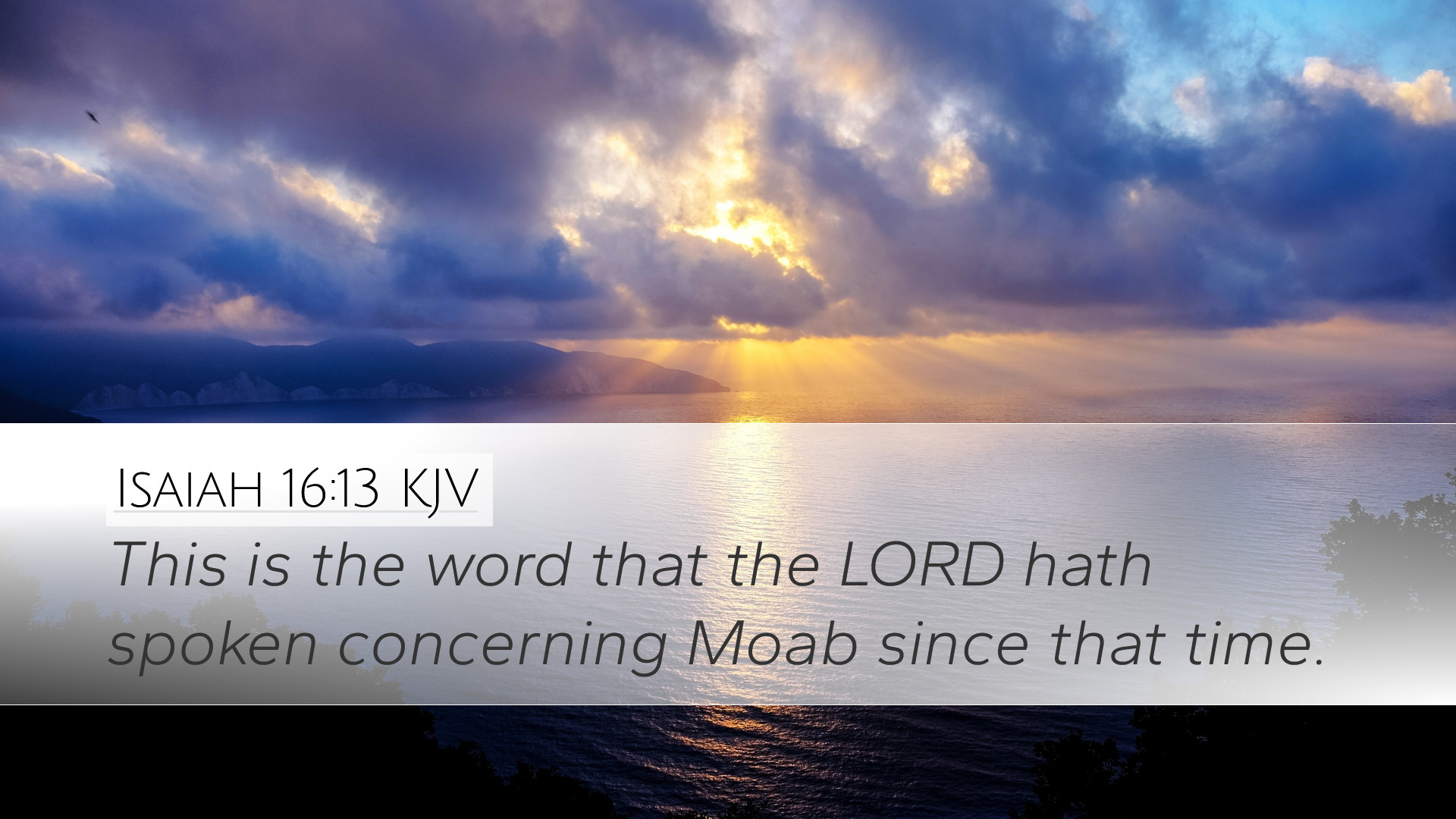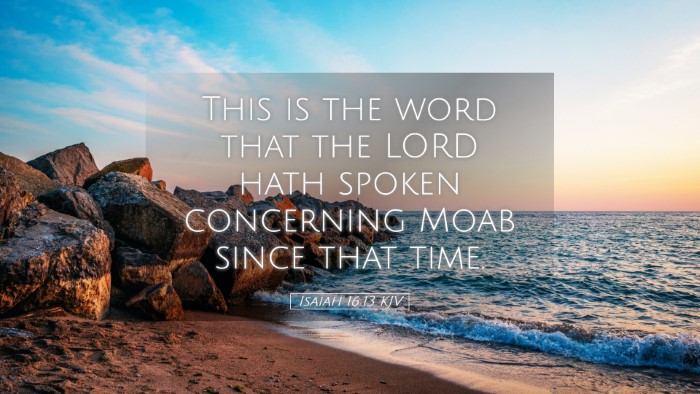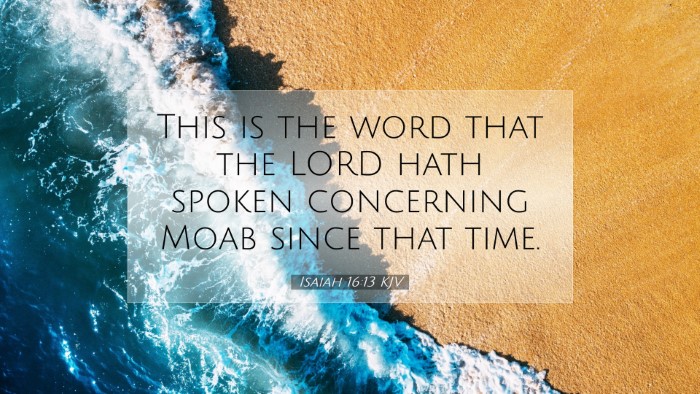Commentary on Isaiah 16:13
Text of Isaiah 16:13: "This is the word that the Lord has spoken concerning Moab since that time." (ESV)
Introduction
This verse is situated within a broader prophetic context regarding Moab, a nation related to Israel through its ancestry yet often characterized by conflict and idolatry. As we dive into the commentaries of renowned theologians, we aim to extract profound insights that reflect on God's sovereign dealings with Moab and the implications for the Church and believers today.
Historical Context
Matters of Moab: Moab was a neighboring kingdom to Israel, often in opposition to God’s people. In the times of the Old Testament, Moab portrayed a mixture of hostility and fleeting moments of alliance with Israel. The prophet Isaiah addresses the impending judgment upon Moab due to its pride and reliance on its own strength.
Matthew Henry’s Commentary
Interpretation of Moab's Context: Matthew Henry notes that this prophecy serves as a warning to Moab concerning their spiritual and moral decay. It highlights the consequences of stubbornness against God's revelations. Henry emphasizes that this word from the Lord is not mere prediction but a divine decree—a call to repentance that the people have historically ignored.
Implications on Spiritual Vigilance: His commentary urges readers to reflect on the seriousness of ignoring prophetic warnings. Just as Moab's refusal led to its downfall, believers today are cautioned against dismissing God's counsel delivered through His Word and His servants.
Albert Barnes’ Insights
Divine Pronouncement: Barnes expands upon the notion that this verse serves as a comprehensive closure of God’s dealings with Moab. He indicates that the phrase "since that time" suggests continuity and a historical reminder of Moab's rebellion against the covenant God established with Israel.
Reflection on God’s Faithfulness: His interpretations suggest that even amidst judgment, there exists an underlying theme of God's faithfulness to His promises. Barnes emphasizes that while God's judgment upon Moab appears harsh, it reflects divine justice. In the face of iniquity, divine consequences are necessary to uphold holiness.
Adam Clarke’s Analysis
Contextualizing Moab's Rejection: Clarke offers a rich contextual analysis, focusing on the historical backdrop of Moab's rejection of Israel's God. He notes that Moab had strayed into idolatry, worshipping Chemosh instead of embracing the true God, which inevitably led to their impending judgment.
Call to Repentance: Clarke highlights the importance of repentance. His elaboration asserts that God’s pronouncement of judgment is intertwined with an invitation to turn back, which demonstrates God's consistent desire for reconciliation. He calls for an understanding of God’s judgments as corrective rather than purely punitive.
Theological Reflections
The Sovereignty of God: The commentaries collectively reflect on the overarching theme of God’s sovereignty over nations. Moab's downfall illustrates how God raises and brings down powers according to His divine plan. The insight that God’s decisions are rooted not in arbitrary choice but in justice and righteousness is pivotal.
God's Judgment and Mercy: Readers are reminded of the balance between God’s justice and mercy; while He does judge sin, His ultimate desire is for redemption. This echoes throughout the New Testament, where God's desire for all people to come to repentance and knowledge of truth is made manifest.
Practical Applications
- Importance of heeding prophetic warnings: Believers today must remain aware of the messages delivered through Scripture and spiritual leaders.
- The call to holiness: This passage compels individuals and churches to examine their spiritual lives to ensure alignment with God’s will.
- Understanding of divine justice: Acknowledging that God’s judgments are expressions of His righteousness encourages humility and reverence.
- Recognizing the opportunity for repentance: Just as Moab was called to repent, so too are we invited to return to God, which remains relevant across all generations.
Conclusion
The commentary on Isaiah 16:13 from these esteemed scholars invites a deeper understanding of God's dealings with Moab—a reflection of His unwavering justice tempered with mercy. As modern readers, the implications of this verse resonate through time, urging personal and communal introspection within the body of Christ.
Ultimately, this prophetic word calls us to witness God’s active engagement in history, recognizing His patience and ultimate desire for restoration amidst human pride and sin.


